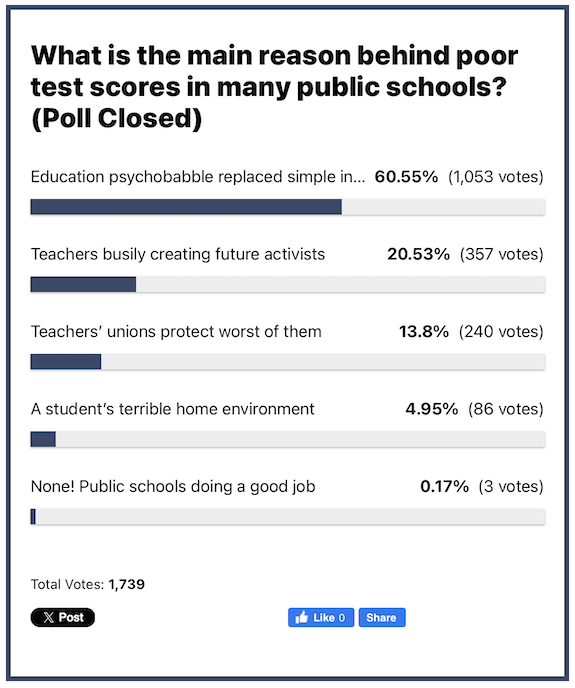Republican lawmakers in Indiana are taking steps to ensure that kids who can’t read well don’t advance prematurely to the next grade.
 The state’s literacy rates have been on the decline since the 2014-15 school year, with a six-point fall between the 2018-19 and 2020-21 school years. Micah Clark, director of the American Family Association in Indiana, says the COVID crisis “really highlighted how kids have fallen behind.”
The state’s literacy rates have been on the decline since the 2014-15 school year, with a six-point fall between the 2018-19 and 2020-21 school years. Micah Clark, director of the American Family Association in Indiana, says the COVID crisis “really highlighted how kids have fallen behind.”
 So, lawmakers want to hold back the third graders who repeatedly fail the state reading tests.
So, lawmakers want to hold back the third graders who repeatedly fail the state reading tests.
“Retention is the absolute last resort if we’ve exhausted all other methods to help struggling readers,” the bill’s author, state Senator Linda Rogers (R), told lawmakers last week.
“If a child doesn’t read by third grade, they really struggle a lot for the rest of their school years,” Clark notes.
This proposed legislation takes that into consideration.
“It’s not fair to a child to pass them on, when they can’t read well, to a higher grade, because it just causes them to struggle more,” he submits.
This is an issue, he says, because schools have moved away from teaching the fundamentals.
“For a lot of parents, that’s been a problem, because a lot of the stuff that’s being taught to kids either shouldn’t be in school or is age-inappropriate or are highly political social agendas. We need to focus on what everybody agrees on, and that’s reading, writing, and arithmetic,” says Clark. Without those three things, kids … cannot succeed in society.”
If schools are not fulfilling their fundamental purpose of instilling skills in those three areas, he argues they are doing students a real disservice “for the rest of their lives.”
“That’s what the legislature’s looking at, and I think it’s going to move and be debated more in the second chamber as it moves over from the Senate to the House next week,” Clark says.
Most of the opposition to the plan comes from Democrats who say holding students back will strain the resources of schools if third-grade classes are forced to grow. Others say holding students back can have harmful social and emotional effects.
On the school choice front, the American Legislative Exchange Council (ALEC) is taking advantage of the momentum of National School Choice Week and the movement that is attracting families who are discouraged by their underperforming public schools.
Andrew Handel, director of ALEC’s Education and Workforce Task Force, says ALEC’s recently launched Education Freedom Alliance aims to encourage more states to establish universal school choice programs.
But opponents are firing against it with the usual misinformation, like “school choice programs will bankrupt public schools or cripple public schools.”
“We see a lot of hyperbole out there, but the reality is that all these programs do is they just make sure that the state money follows the student to whatever school is best for them,” Handel asserts.
His organization believes all families in all states should have the opportunity to send their children to the school that is best for them.
“We don’t believe that income, race, gender, geography – we don’t believe any of those things should result in a student being forced to attend a school that simply isn’t the best fit for them,” says Handel.
Led by the American Legislative Exchange Council, Committee to Unleash Prosperity, and the Job Creators Network, the growing list of coalition partners includes Americans for Prosperity, EdChoice, The Heritage Foundation, Parents Defending Education, and “every kid.” Their goal is to see universal school choice in 25 states by 2025.
Currently, only 10 states have universal education freedom policies.
Written by Bronson Woodruff and Bob Kellogg for American Family News ~ February 5, 2024
